The Purple Carrot Farm has a rich history defined by various ambitions, objectives, and involvement opportunities throughout its life at Bennington College. While it is one of the oldest projects on campus, its structure and production efforts have transformed by the changing flux of student interest and participatory efforts. Tatiana Abatemarco, visiting faculty of Food Studies, shares the Farm’s story from the 1940s to now, and opportunities for growth in the near future.
“There’s a rich history of farming at Bennington. During World War II, students were farming on the campus and growing their own food as part of the war effort,” Abatemarco says. “Then in the 1990s, the Purple Carrot Farm started as a student-generated endeavor.” It was at this point that a group of students interested in organic agriculture began selling produce to students in a cart outside Commons, as well as to the Dining Hall for kitchen use. This lasted into the early 2000s, until the last group of adamantly engaged students graduated.
Before graduating, these students established a plan to keep the Farmin managed production for years to come. “They created a few documents that outlined what the farm needs to survive at Bennington College. They asked to have a farm tech or farm manager—someone who was in a paid staff position who would supervise and help run the daily work of the Farm,” Abatemarco says. These documents also encouraged the development of academic links to the Farm, which had not yet existed at Bennington.
Food Insecurity classes, such as Resilience in Food Access and Action Lab for Food Sovereignty, gradually began to incorporate farm work into their course plans. With this followed greater student participation and the development of more involvement opportunities for those who wished to go the extra mile. In addition to integrated farm and academic course work, students can apply for jobs and internships with the Farm. Paid positions on campus require students to work on the Farm for a certain amount of hours per week, and tasks vary among employees; some students prefer non-tilling agriculture while others enjoy using the tractor, so there are a variety of practices to choose from.
In addition to paid student positions, the Farm also appreciates volunteer efforts from anyone who wishes to get involved, regardless of past experience. Facilitated volunteer opportunities are anticipated to begin next semester. “Our plan for the spring is to have work days every Sunday where everyone on campus is welcome to join us.”
This summer, three internships will be offered through the Farm, each one thirty hours per week. Recruiting efforts for summer internships will begin in the spring semester. Qualified applicants will have some experience with agriculture, gardening, or farming. “You do not need to have Food Studies in your Plan, but if you worked on a farm over summers, grew up on a farm, or garden for fun, those are all things that can make you qualified.”
Student employees are currently preparing the Farm for next spring. Abatemarco says, “This season was sort of a wash, so we’re thinking about everything we can do to make next season successful—things like planting garlic, planting bulbs, planting cover crops, clearing out weeds in areas where we’re going to be planting things in the spring, and moving some plants around.” Last week, workers and volunteers began harvesting daikon radish, bok choy, carrots, and beets. They are also working on pulling the rest of the tomato plants out for the season, which have been growing in the greenhouse, as well as the remaining fruiting raspberries.
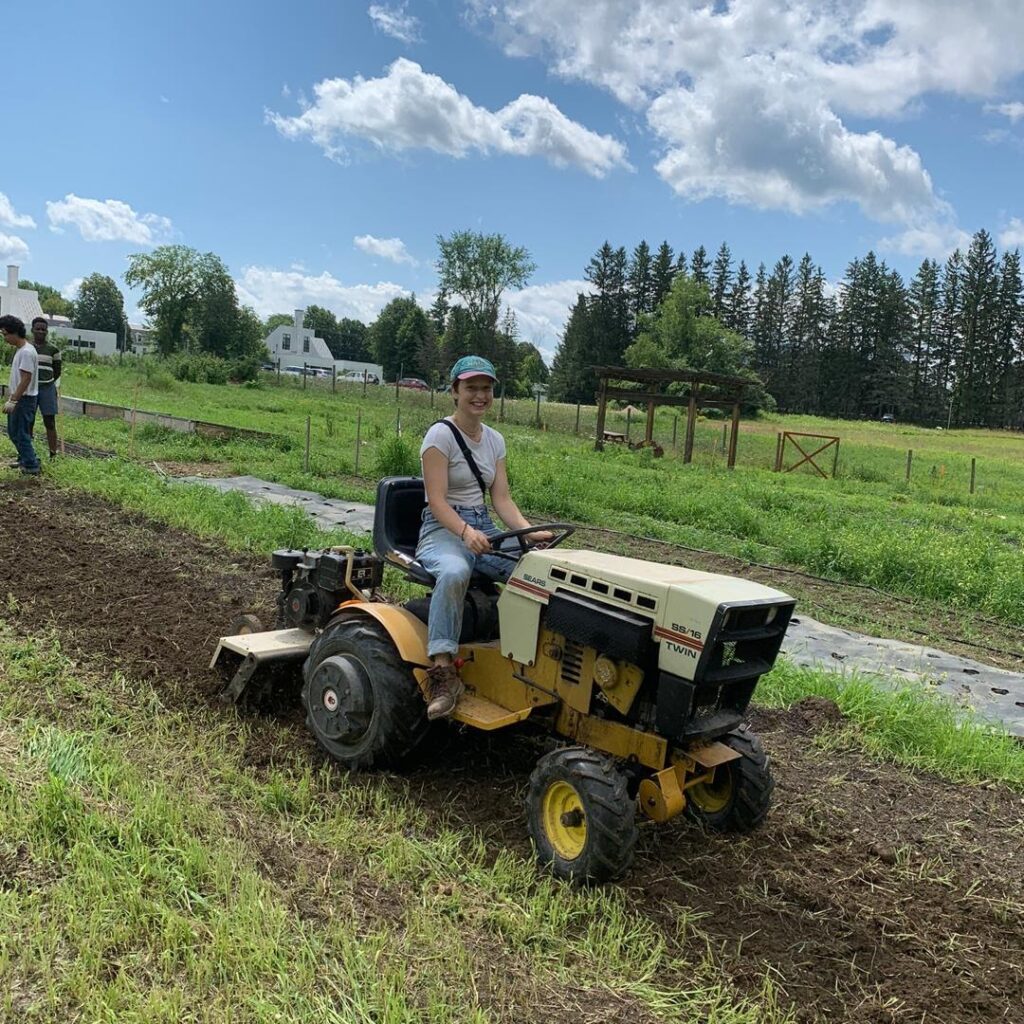
Soon, the greenhouse will be filled with greens like lettuce, spinach, and kale. “If we remember to shut the greenhouse doors at night—we’ve had some insect pressure—if everything works out, we’ll hopefully have greens going into November and maybe even December,” Abatemarco says.
Abatemarco is most excited about permaculture developments happening at the Farm. “I’m particularly passionate about these practices where we can grow food without tilling the ground. I’m interested in no-till agriculture and permaculture production, and bringing together food and medicine.” Right now, the Farm is working on a medicinal and culinary herb plot that will consist primarily of perennial plants. They are also in the process of implementing a more robust berry section for future seasons.
“My hope for the Farm is that it will be a place for students across campus,” Abatemarco says. “Anyone can benefit from learning how to grow food. It can be very psychologically soothing, it can be spiritually meaningful, it’s amazing for your health. So I want it to be open to as many students as possible, in as many different areas of the campus as possible.”
Today, the Farm is exceptionally different from what it was in decades past. Student interest dropped last year, the same time Bennington received a grant of one million dollars from the Mellon Foundation to address food insecurity. Part of the grant was allocated to the Purple Carrot Farm to encourage the utilization of a sustainability plan. Use of the grant money was delayed because of the struggles posed to the Farm by COVID-19, but efforts have taken off once again since the beginning of the semester.
Visit the Purple Carrot Farm’s Facebook page at www.facebook.com/pcfbenningtoncollege and their Instagram at @pcfbenningtoncollege. Contact Tatiana Abatemarco at tatianaabatemarco@bennington.edu for more information.
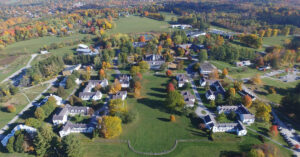
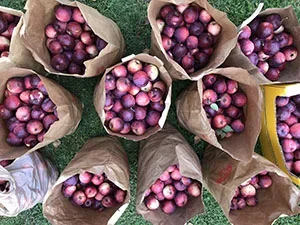
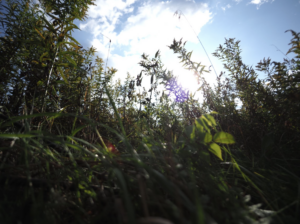
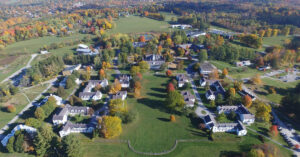
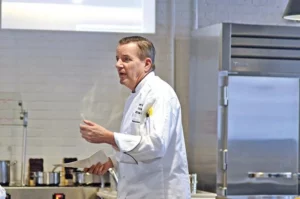
Be First to Comment